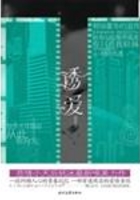Her organ, to which she gave more labour than she was quite equal to, was now one of her main delights. Often would its chords be heard creeping through the long ducts and passages of the castle: either for a small instrument its tone was peculiarly penetrating, or the chapel was the centre of the system of the house. On the roof would Donal often sit listening to the sounds that rose through the shaft--airs and harmonies freed by her worshipping fingers--rejoicing to think how her spirit was following the sounds, guided by them in lovely search after her native country.
One day she went on playing till she forgot everything but her music, and almost unconsciously began to sing "The Lord is mindful of his own." She was unaware that she had two listeners--one on the roof above, one in the chapel below.
When twelve months were come and gone since his departure, the earl one bright morning approached the door of the castle, half doubting, half believing it his own: he was determined on dismissing the factor after rigorous examination of his accounts; and he wanted to see Davie. He had driven to the stables, and thence walked out on the uppermost terrace, passing the chapel without observing its unmasked windows. The great door was standing open: he went in, and up the stair, haunted by sounds of music he had been hearing ever since he stepped on the terrace.
But on the stair was a door he had never seen! Who dared make changes in his house? The thing was bewildering! But he was accustomed to be bewildered.
He opened the door--plainly a new one--and entered a gloomy little passage, lighted from a small aperture unfit to be called a window.
The under side of the bare steps of a narrow stone stair were above his head. Had he or had he not ever seen the place before? On the right was a door. He went to it, opened it, and the hitherto muffled music burst loud on his ear. He started back in dismal apprehension:--there was the chapel, wide open to the eye of day!--clear and clean!--gone the hideous bed! gone the damp and the dust! while the fresh air trembled with the organ-breath rushing and rippling through it, and setting it in sweetest turmoil! He had never had such a peculiar experience! He had often doubted whether things were or were not projections from his own brain; he moved and acted in a world of subdued fact and enhanced fiction; he knew that sometimes he could not tell the one from the other; but never had he had the apparently real and the actually unreal brought so much face to face with each other! Everything was as clear to his eyes as in their prime of vision, and yet there could be no reality in what he saw!
Ever since he left the castle he had been greatly uncertain whether the things that seemed to have taken place there, had really taken place. He got himself in doubt about them the moment he failed to find the key of the oak door. When he asked himself what then could have become of his niece, he would reply that doubtless she was all right: she did not want to marry Forgue, and had slipped out of the way: she had never cared about the property! To have their own will was all women cared about! Would his factor otherwise have dared such liberties with him, the lady's guardian? He had not yet rendered his accounts, or yielded his stewardship. When she died the property would be his! if she was dead, it was his! She would never have dreamed of willing it away from him! She did not know she could: how should she? girls never thought about such things!
Besides she would not have the heart: he had loved her as his own flesh and blood!
At intervals, nevertheless, he was assailed, at times overwhelmed, by the partial conviction that he had starved her to death in the chapel. Then he was tormented as with all the furies of hell. In his night visions he would see her lie wasting, hear her moaning, and crying in vain for help: the hardest heart is yet at the mercy of a roused imagination. He saw her body in its progressive stages of decay as the weeks passed, and longed for the process to be over, that he might go back, and pretending to have just found the lost room, carry it away, and have it honourably buried! Should he take it for granted that it had lain there for centuries, or suggest it must be lady Arctura--that she had got shut up there, like the bride in the chest? If he could but find an old spring lock to put on the door! But people were so plaguy sharp nowadays! They found out everything!--he could not afford to have everything found out!--God himself must not be allowed to know everything!
He stood staring. As he stood and stared, his mind began to change: perhaps, after all, what he saw, might be! The whole thing it had displaced must then be a fancy--a creation of the dreaming brain!
God in heaven! if it could but be proven that he had never done it!
All the other wicked things he was--or supposed himself guilty of--some of them so heavy that it had never seemed of the smallest use to repent of them--all the rest might be forgiven him!--But what difference would that make to the fact that he had done them? He could never take his place as a gentleman where all was known! They made such a fuss about a sin or two, that a man went and did worse out of pure despair!
But if he had never murdered anybody! In that case he could almost consent there should be a God! he could almost even thank him!--For what! That he was not to be damned for the thing he had not done--a thing he had had the misfortune to dream he had done--God never interfering to protect him from the horrible fancy? What was the good of a God that would not do that much for you--that left his creatures to make fools of themselves, and only laughed at them!--Bah! There was life in the old dog yet! If only he knew the thing for a fancy!















